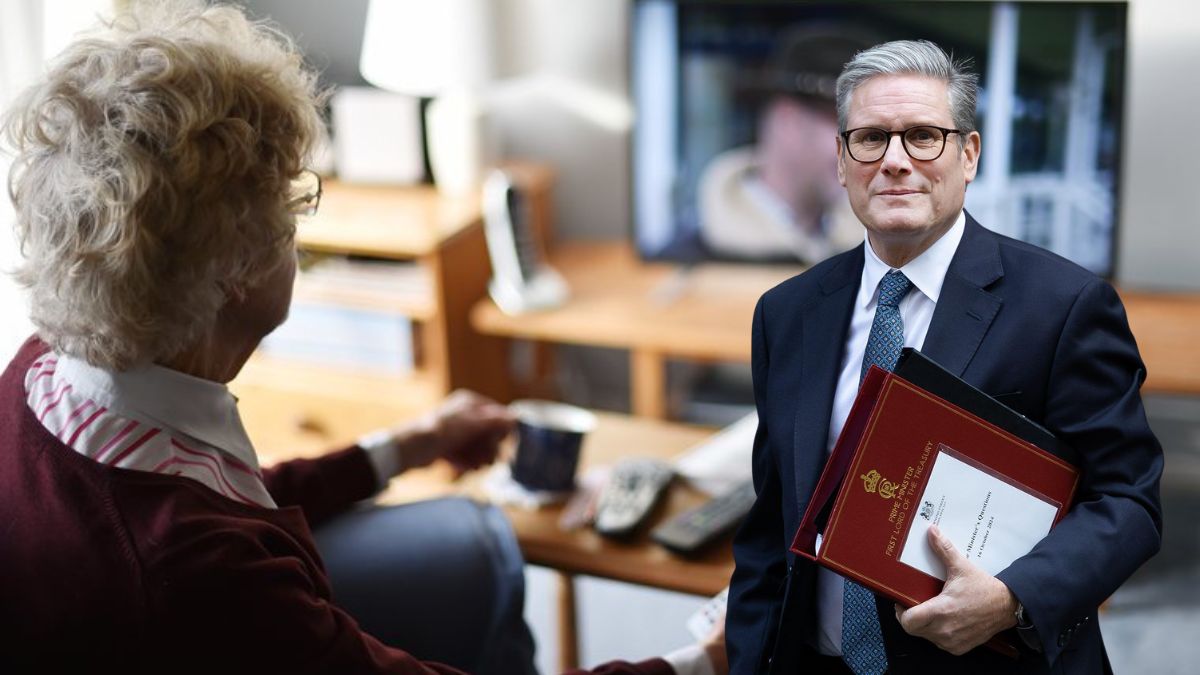The UK Government has confirmed that free TV licences for pensioners will return in 2025, marking a significant policy reversal after years of public debate. Starting from April 2025, all citizens aged 75 and above will once again enjoy free access to television without paying the £169.50 annual licence fee. This decision comes at a time when rising living costs continue to place pressure on retirees, making the announcement a major relief for millions of households.
Background of the Free TV Licence Policy
The free TV licence scheme was first introduced in 2000 to support older citizens, many of whom relied on television for news, entertainment, and companionship. For years, all pensioners aged 75 and over were exempt from paying the licence fee.
However, in 2020, the policy was scaled back. Responsibility for funding shifted to the BBC, which restricted free licences only to pensioners who received Pension Credit. This decision sparked heavy criticism, with campaigners arguing it unfairly penalised vulnerable pensioners who struggled to navigate the application process or who narrowly missed out on qualifying.
What Will Change in 2025?
From 1 April 2025, the government will reinstate universal eligibility for free TV licences:
- Age Requirement: All pensioners aged 75 or older will qualify.
- No Means Test: Eligibility will apply regardless of income or benefits status.
- Automatic Coverage: TV Licensing will update records automatically, removing the need for pensioners to apply separately.
The government has earmarked £700 million annually to cover the costs of restoring this universal benefit.
Financial Relief for Pensioners
The TV licence fee of £169.50 per year may seem modest compared to other household expenses, but for pensioners living solely on the State Pension, it represented a significant burden.
With the licence now free, retirees will be able to redirect this money toward essentials such as:
- Energy bills – particularly critical during winters.
- Groceries – with food inflation still high in 2025.
- Healthcare expenses – including prescriptions and mobility aids.
For pensioners on tight budgets, this annual saving could mean fewer sacrifices in daily life.
Impact on Households
Government estimates suggest that 4.5 million households will benefit from this policy change.
Beyond financial relief, the decision also carries social benefits. For many older adults, television is more than just entertainment—it is a lifeline against isolation, offering connection to the outside world, news updates, and cultural programming. Advocacy groups argue that ensuring universal access strengthens the wellbeing and independence of pensioners.
Criticism and Public Response
The restoration has been widely celebrated, but not without debate.
- Critics argue that allocating £700 million annually to all pensioners—regardless of financial need—may not be the most effective use of public funds. They suggest the money could have been better targeted at low-income retirees.
- Supporters insist that universal eligibility avoids bureaucratic hurdles and stigma. Many pensioners previously missed out on Pension Credit or found the application system confusing. Restoring universality ensures that no one is excluded.
Charities such as Age UK have praised the move, describing it as “a victory for fairness and dignity.”
How to Claim a Free TV Licence
The process for pensioners will be automatic:
- From 1 April 2025, TV Licensing will update records for all those aged 75+.
- Pensioners will not need to submit new applications.
- Those who paid in advance will be entitled to a refund covering the period after April 2025.
Pensioners are encouraged to ensure their personal details are up to date with both TV Licensing and the Department for Work and Pensions (DWP) to avoid administrative delays.
Wider Pension Updates in 2025
The return of free TV licences is part of a broader pension support package the government is rolling out in 2025. Other measures under consideration include:
- Triple Lock Review: The State Pension is expected to rise again under the Triple Lock system, ensuring payments increase by the highest of wage growth, inflation, or 2.5%.
- Pension Credit Awareness Campaign: Efforts are underway to encourage more eligible pensioners to claim Pension Credit, with estimates showing thousands miss out every year.
- Support for Living Costs: Additional measures such as Winter Fuel Payments and council tax relief continue to help pensioners through the cost-of-living crisis.
Political and Social Implications
The restoration of free TV licences is not just a financial policy—it also carries political weight. Pensioners form a large and influential voting bloc, and this move is widely seen as an effort to rebuild trust and goodwill among older demographics.
Socially, the change signals recognition of the challenges retirees face in an economy where basic costs are climbing faster than pensions. By reinstating a popular benefit, the government underscores its commitment to valuing the contributions of older citizens.
What Pensioners Should Do Now
To prepare for the upcoming changes, pensioners should:
- Check Age Eligibility – Confirm you or your partner are 75 or older by April 2025.
- Update Records – Ensure contact details with TV Licensing and the DWP are accurate.
- Keep Payment Proof – If you’ve prepaid, keep receipts for claiming refunds.
- Follow Guidance – Look out for official updates in early 2025 regarding the refund process.
With these steps, pensioners can ensure a smooth transition into the restored free TV licence scheme.
FAQs
Q1: Who qualifies for the free TV licence in 2025?
All pensioners aged 75 and above, regardless of income or benefits status, will qualify from April 2025.
Q2: Do I need to apply for the free TV licence?
No. The process will be automatic, and TV Licensing will update records without requiring a separate application.
Q3: What happens if I already paid for my licence?
You will be entitled to a refund for any period after April 2025 once the free licence is reinstated.
Q4: How many households will benefit from this policy?
An estimated 4.5 million UK households are expected to benefit from the restoration.
Q5: How is the government funding this initiative?
The Treasury has allocated £700 million annually to cover the costs, ensuring the BBC is not burdened with the expense.








